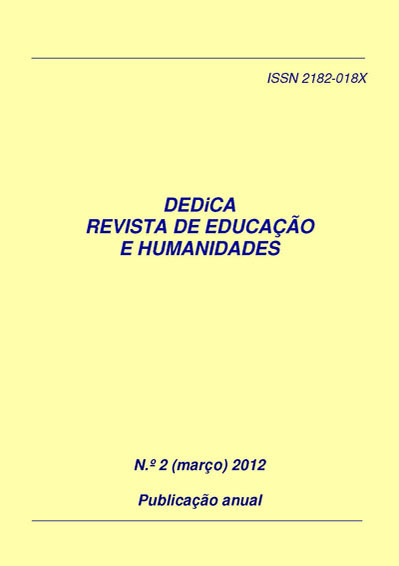Musical inter-language in film: trans-culturality and communicative integration
DOI:
https://doi.org/10.30827/dreh.v0i2.7122Keywords:
film music, inter-linguistics, inter-culturality, media educationAbstract
Music in film frequently grounds its effectiveness as signifier in a certain empirical codification shared with the audience. This participation does not impose a unique and necessary meaning, but only mediates between the apparently objective construction of the film and the viewer´s subjectivity. Proceeding in a symbolic mode, music introduces a meta-textual element which only achieves a meaning inside the viewer´s imagination and which adapts the message to their own paradigm and therefore allows interpretation from various sociocultural contexts. This circumstance justifies music language in film to be normally accepted, comprehended and employed in numerous production centres which belong to different sociocultural backgrounds, demonstrating a global communication vehicle capable of allowing signification codes from a particular environment to surpass their limits and be assimilated by other social dominions different from the original, with the consequent potential for education and communicative integration.Downloads
References
Altman, R., Jones, M. y Tatroe, S. (2000). Inventing the cinema soundtrack: Hollywood multiplane sound system. En J. Buhler; C. Flinn; D. Neumeyer (Eds.), Music and cinema, 339-359. Hanover: University Press of New England.
Arcos, M. de (2006). Experimentalismo en la música cinematográfica. Madrid: Fondo de Cultura Económica de España.
Aróstegui, J. L. (2005). Las tecnologías de la información y la comunicación en el aula de música. Musiker. Cuadernos de Música, 14 (2005) 173-189.
Aumont, J.; Marie, M. (2009). Análisis del film. Barcelona: Paidós (1ª ed. L´analyse des films. París: Nathan, 1988).
Barenboim, D. (2011). En la orquesta todos son iguales. Eufonía. Didáctica de la música, 51 (2011) 9-11.
Bley-Vroman, R. (1983). The comparative fallacy in interlanguage studies: the case of systematicity. Language Learning, 33, 1 (1983) 1-17.
Bocanegra, A. (1998). Input and interlanguage: a review of the research. Estudios Ingleses de la Universidad Complutense, 6 (1998) 129-159.
Chion, M. (1997). La música en el cine. Barcelona: Paidós. (1ª ed. La musique au cinéma. París: Arthème Fayard, 1995)
Donnelly, K. J. (2001). The hidden heritage of film music: history and scholarship. En K. J. Donnelly (Ed.), Film music: critical approaches, 1-15. Nueva York: Continuum.
Golden, S. (1998). Interlanguage. Quaderns: revista de traducció, 1 (1998) 102-104.
Hart, A. (2002). La educación artística y la educación de los medios en la era de la reproducción digital. En R. Huerta (Ed.), Los valores del arte en la enseñanza, 89-100. Valencia: Universitat de València.
Henderson, M. M. T. (1984). The notion of interlanguage. Journal of Modern Language Learning, 21 (1984) 23-27.
Infante, F.; Lombardo, M. (1997). Las teorías de la música en el cine. En C. Colón; F. Infante; M. Lombardo, Historia y teoría de la música en el cine. Presencias afectivas, 205-263. Sevilla: Alfar.
Lack, R. (2002). Twenty four frames under: a buried history of film music. Londres: Quartet Books (1ª ed. 1997).
London, K. (1936). Film music: a summary of the characteristic features of its history, aesthetics, technique and possible developments. Londres: Faber and Faber.
Martin, M. (1996). El lenguaje del cine. Barcelona: Gedisa (1ª ed. Le langage cinématographique. París: Éditions du Cerf, 1955).
Martín Félez, D. (2010). La banda sonora en las producciones audiovisuales infantiles y su aplicación a la educación infantil, primaria y secundaria: una propuesta de investigación-acción (tesis doctoral). Granada: Universidad de Granada.
Metz, C. (2002). Ensayos sobre la significación en el cine (1964-1968), vol. 1. Barcelona: Paidós (1ª ed. Essais sur la signification au cinéma. París: Éditions Klincksieck, 1968).
Montoya Rubio, J. C. (2010). Música y medios audiovisuales. Planteamientos didácticos en el marco de la educación musical (tesis doctoral). Salamanca: Universidad de Salamanca.
Morales de la Fuente, L. (2005). Música para la integración y el mestizaje. Eufonía. Didáctica de la música, 33 (2005) 84-92.
Morin, E. (2001). El cine o el hombre imaginario. Barcelona: Paidós (1ª ed. Le cinéma ou l´homme imaginaire. París: Éditions de Minuit, 1956).
Neumeyer, D.; Buhler, J. (2001). Analytical and interpretive approaches to film music (I): analysing the music. En K. J. Donnelly (Ed.), Film music: critical approaches, 16-38. Nueva York: Continuum.
Notario, A. (2005). La música prescindible. En M. Olarte (Ed.), La música en los medios audiovisuales, 205-212. Salamanca: Plaza Universitaria.
Ortiz Molina, M. A. (2011). Tendiendo puentes hacia la interculturalidad… desde Andalucía (España) (II). Propuestas desde la educación musical. DEDiCA. REVISTA DE EDUCAÇÃO E HUMANIDADES, 1 (2011) 95-116.
Pérez Aldeguer, S. (2008). El ritmo: una herramienta para la integración social. Ensayos, 8 (2008) 189-196.
Porta, A. (1998). Cine, música y aprendizaje significativo. Comunicar, 11 (1998) 106-113.
Radigales, J. (2007). La música en el cinema. Barcelona: UOC.
Selinker, L. (1972). Interlanguage. International Review of Applied Linguistics in Language Teaching, 10, 1-4 (1972) 209-231.
Tarone, E.; Frauenfelder, U.; Selinker, L. (1976). Systematicity/variability and stability/instability in interlanguage systems. En H. D. Brown (Ed.), Papers in second language acquisition, 93-134. Especial nº 4 de Language Learning (1976).
Traunmüller, H. (1975). A universal interlanguage: some basic considerations. General Linguistics, 22 (1975). Disponible en: http://www2.ling.su.se/staff/harmut/UIL.pdf. Consultado en 10/04/2011.
Tyner, K. R.; Lloyd, D. (1995). Aprender con los medios de comunicación. Madrid: Ediciones de la Torre (1ª ed. Media and you. An elementary media literacy curriculum. Nueva Jersey: Educational Technology Publications, 1991).
Vila Merino, E. S. (2011). Buscando un lenguaje común en educación: ¿De qué hablamos cuando hablamos de interculturalidad? DEDiCA. REVISTA DE EDUCAÇÃO E HUMANIDADES, 1 (2011) 147-157.
Wardhaugh, R. (1970). The contrastive analysis hypothesis. TESOL Quarterly, 4, 2 (1970) 123-130.












